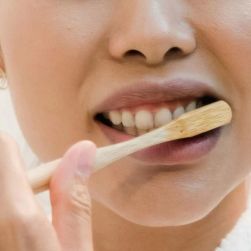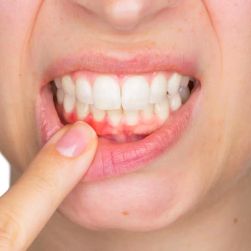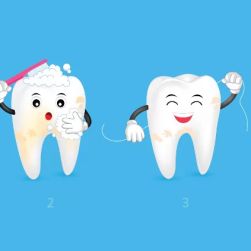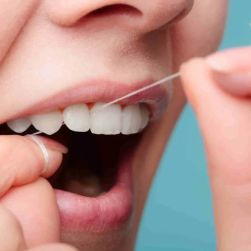Healthy Habits for Promoting Good Oral Health and Hygiene – Expert Tips for a Bright Smile
- 1. Why Oral Health is Important
- 2. Essential Habits for Good Oral Hygiene
- 3. Diet and Its Role in Oral Health
- 4. Choosing the Right Oral Hygiene Products
- 5. Real-Life Experience: How Healthy Habits Transformed My Oral Health
- 6. Maintaining Oral Health Long-Term: Tips and Practices
1. Why Oral Health is Important
Oral health is about more than just having a bright smile – it’s essential to your overall well-being. Poor oral hygiene can lead to tooth decay, gum disease, and other health issues that affect your quality of life. In fact, research shows a strong link between oral health and systemic conditions such as heart disease, diabetes, and respiratory infections.
Maintaining healthy teeth and gums not only keeps you looking good but also improves your ability to eat, speak, and smile with confidence. Let’s explore some key habits that can help promote good oral health and hygiene every day.
2. Essential Habits for Good Oral Hygiene
Developing healthy habits is the first step toward achieving optimal oral health. Here are some essential habits that everyone should adopt:
- Brush Your Teeth Twice a Day: Brushing your teeth is the cornerstone of good oral hygiene. It’s essential to brush at least twice a day with fluoride-free toothpaste to remove food particles and plaque. Make sure to use a soft-bristled toothbrush and brush for at least two minutes, covering all surfaces of your teeth and gums.
- Floss Daily: Flossing helps remove debris and plaque between your teeth that brushing alone cannot reach. Doing this once a day, preferably before bedtime, ensures your teeth are thoroughly cleaned and protected from cavities and gum disease.
- Use Mouthwash: Mouthwash is a great addition to your daily routine, as it helps kill harmful bacteria, reduce plaque, and freshen your breath. Look for alcohol-free mouthwash to avoid drying out your mouth.
- Visit Your Dentist Regularly: Routine checkups with your dentist (every six months or as recommended) are essential for preventing and detecting oral health issues early. Your dentist will also perform a professional cleaning to remove tartar buildup that cannot be removed through brushing and flossing alone.
3. Diet and Its Role in Oral Health
What you eat plays a crucial role in maintaining healthy teeth and gums. A balanced diet rich in vitamins, minerals, and other essential nutrients can help strengthen your teeth and fight off bacteria that cause decay. Here are some dietary tips to support oral health:
- Eat Calcium-Rich Foods: Calcium is vital for strengthening your enamel and keeping your teeth strong. Include foods like dairy products (cheese, yogurt), leafy greens (spinach, kale), and almonds in your diet.
- Limit Sugary Foods and Drinks: Sugar feeds the bacteria in your mouth that produce acids, leading to tooth decay. Reduce your intake of sugary snacks, sodas, and candies, which can increase the risk of cavities.
- Drink Plenty of Water: Water helps rinse away food particles and bacteria, keeping your mouth hydrated and promoting healthy saliva production, which is essential for neutralizing acids and remineralizing your teeth.
- Consume Vitamin D and Vitamin C: Vitamin D helps your body absorb calcium, while Vitamin C strengthens your gums and tissues. Foods like citrus fruits, strawberries, and fortified cereals are great sources of these vitamins.
4. Choosing the Right Oral Hygiene Products
Choosing the right products for your oral care routine is essential for achieving the best results. Here are some tips for selecting effective oral hygiene products:
- Toothpaste: Opt for fluoride-free toothpaste to avoid chemicals, or choose natural toothpaste options that contain ingredients like baking soda, activated charcoal, or coconut oil for a gentle, yet effective clean.
- Toothbrush: A soft-bristled toothbrush is ideal for most people, as it effectively cleans without damaging the enamel or irritating your gums. Consider switching to an electric toothbrush for more consistent brushing.
- Floss: Choose dental floss or floss picks that are comfortable to use and get into tight spaces between your teeth. You can also try water flossers for a gentler, more thorough clean.
When choosing products, be sure to look for those that align with your natural oral health goals and avoid those with artificial additives or harsh chemicals.
5. Real-Life Experience: How Healthy Habits Transformed My Oral Health
Before adopting a more disciplined oral care routine, I struggled with frequent cavities and gum issues. After switching to a natural toothpaste, flossing every night, and making a conscious effort to reduce sugar intake, I noticed significant improvements. My teeth felt cleaner, my gums were healthier, and I no longer needed frequent dental treatments. This experience truly reinforced how powerful healthy habits can be in promoting good oral hygiene and long-term dental health.
6. Maintaining Oral Health Long-Term: Tips and Practices
Maintaining good oral health is a lifelong commitment. By consistently following the habits mentioned above, you can keep your teeth and gums in optimal condition for many years to come. It's also important to stay up to date with the latest oral health trends and products that promote natural, chemical-free oral care.
If you're ready to enhance your oral care routine, check out our selection of natural oral health products designed to help you achieve the healthiest smile possible!







